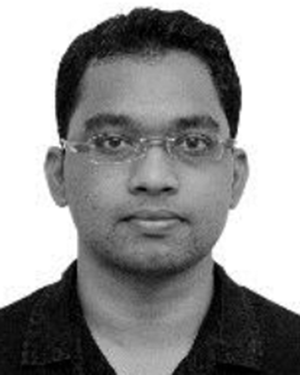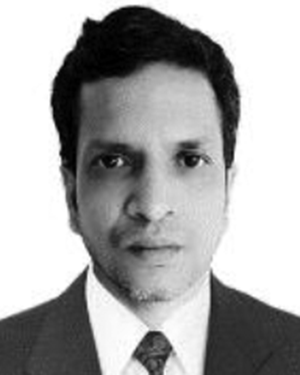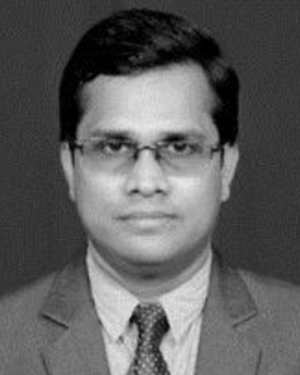Abstract:
This paper presents an empirical wavelet transform (EWT) based approach to perform postmortem analysis of wide-area measurement (WAM) based signals. The commonly used emp...Show MoreMetadata
Abstract:
This paper presents an empirical wavelet transform (EWT) based approach to perform postmortem analysis of wide-area measurement (WAM) based signals. The commonly used empirical mode decomposition (EMD) has limitations such as mode mixing, sensitivity to noise, and sampling rate. The decomposition provided by EWT is more consistent as compared to EMD. The modes revealed by the EWT help in extracting dynamic patterns of different power system disturbances. The dynamic patterns extracted through EWT-based decomposition are further used as inputs to a data-mining tool known as random forest, to build a wide-area disturbance classifier (WADC) model. The efficient mode extraction quality of the EWT-based signal processing tool is analyzed for WAM data recorded on Northern Grid of Indian Power System. The performance of the WADC is validated on IEEE 39-bus New England test system. The results provide improved performance in terms of decomposition quality and classification accuracy.
Published in: IEEE Transactions on Industrial Informatics ( Volume: 14, Issue: 3, March 2018)

Department of Electrical Engineering, Indian Institute of Technology Delhi, New Delhi, India
Manas Kumar Jena received the B.Tech. degree in electrical and
electronics engineering from the Silicon Institute of Technology Bhubaneswar, Bhubaneswar, India, in 2011, and is
currently working toward Ph.D. degree in power systems engineering at the Department of Electrical Engineering, Indian
Institute of Technology Delhi, New Delhi, India.
He joined as a Junior Research Fellow in the School of Electrical Sciences, In...Show More
Manas Kumar Jena received the B.Tech. degree in electrical and
electronics engineering from the Silicon Institute of Technology Bhubaneswar, Bhubaneswar, India, in 2011, and is
currently working toward Ph.D. degree in power systems engineering at the Department of Electrical Engineering, Indian
Institute of Technology Delhi, New Delhi, India.
He joined as a Junior Research Fellow in the School of Electrical Sciences, In...View more

Department of Electrical Engineering, Indian Institute of Technology Delhi, New Delhi, India
Bijaya Ketan Panigrahi (SM’06) received the Ph.D. degree in
power systems engineering from Sambalpur University, Sambalpur, India, in 2004.
He is currently a Professor with the Department of Electrical Engineering, Indian Institute of Technology Delhi, New
Delhi, India. His research interests include digital signal processing and soft computing applications to power
system.
Bijaya Ketan Panigrahi (SM’06) received the Ph.D. degree in
power systems engineering from Sambalpur University, Sambalpur, India, in 2004.
He is currently a Professor with the Department of Electrical Engineering, Indian Institute of Technology Delhi, New
Delhi, India. His research interests include digital signal processing and soft computing applications to power
system.View more

School of Electrical Sciences, Indian Institute of Technology Bhubaneswar, Bhubaneswar, India
Subhransu Ranjan Samantaray (M’08–SM’10) received
the B.Tech. degree in electrical engineering from the University College of Engineering, Burla, India, and the Ph.D.
degree in power system engineering from the Department of Electronics and Communication Engineering, National
Institute of Technology, Rourkela, India, in, 1999 and 2007, respectively.
He is an Associate Professor with the School of Electrical Sciences, In...Show More
Subhransu Ranjan Samantaray (M’08–SM’10) received
the B.Tech. degree in electrical engineering from the University College of Engineering, Burla, India, and the Ph.D.
degree in power system engineering from the Department of Electronics and Communication Engineering, National
Institute of Technology, Rourkela, India, in, 1999 and 2007, respectively.
He is an Associate Professor with the School of Electrical Sciences, In...View more

Department of Electrical Engineering, Indian Institute of Technology Delhi, New Delhi, India
Manas Kumar Jena received the B.Tech. degree in electrical and
electronics engineering from the Silicon Institute of Technology Bhubaneswar, Bhubaneswar, India, in 2011, and is
currently working toward Ph.D. degree in power systems engineering at the Department of Electrical Engineering, Indian
Institute of Technology Delhi, New Delhi, India.
He joined as a Junior Research Fellow in the School of Electrical Sciences, Indian Institute of Technology
Bhubaneswar, Bhubaneswar, India, where he worked for three years. His research interests include wide-area protection,
improving wide-area situational awareness using phasor measurement unit information, and application of synchrophasors
to mitigate blackouts.
Manas Kumar Jena received the B.Tech. degree in electrical and
electronics engineering from the Silicon Institute of Technology Bhubaneswar, Bhubaneswar, India, in 2011, and is
currently working toward Ph.D. degree in power systems engineering at the Department of Electrical Engineering, Indian
Institute of Technology Delhi, New Delhi, India.
He joined as a Junior Research Fellow in the School of Electrical Sciences, Indian Institute of Technology
Bhubaneswar, Bhubaneswar, India, where he worked for three years. His research interests include wide-area protection,
improving wide-area situational awareness using phasor measurement unit information, and application of synchrophasors
to mitigate blackouts.View more

Department of Electrical Engineering, Indian Institute of Technology Delhi, New Delhi, India
Bijaya Ketan Panigrahi (SM’06) received the Ph.D. degree in
power systems engineering from Sambalpur University, Sambalpur, India, in 2004.
He is currently a Professor with the Department of Electrical Engineering, Indian Institute of Technology Delhi, New
Delhi, India. His research interests include digital signal processing and soft computing applications to power
system.
Bijaya Ketan Panigrahi (SM’06) received the Ph.D. degree in
power systems engineering from Sambalpur University, Sambalpur, India, in 2004.
He is currently a Professor with the Department of Electrical Engineering, Indian Institute of Technology Delhi, New
Delhi, India. His research interests include digital signal processing and soft computing applications to power
system.View more

School of Electrical Sciences, Indian Institute of Technology Bhubaneswar, Bhubaneswar, India
Subhransu Ranjan Samantaray (M’08–SM’10) received
the B.Tech. degree in electrical engineering from the University College of Engineering, Burla, India, and the Ph.D.
degree in power system engineering from the Department of Electronics and Communication Engineering, National
Institute of Technology, Rourkela, India, in, 1999 and 2007, respectively.
He is an Associate Professor with the School of Electrical Sciences, Indian Institute of Technology Bhubaneswar,
Bhubaneswar, India. His major research interests include intelligent protection for transmission systems and microgrid
protection with distributed generation.
Subhransu Ranjan Samantaray (M’08–SM’10) received
the B.Tech. degree in electrical engineering from the University College of Engineering, Burla, India, and the Ph.D.
degree in power system engineering from the Department of Electronics and Communication Engineering, National
Institute of Technology, Rourkela, India, in, 1999 and 2007, respectively.
He is an Associate Professor with the School of Electrical Sciences, Indian Institute of Technology Bhubaneswar,
Bhubaneswar, India. His major research interests include intelligent protection for transmission systems and microgrid
protection with distributed generation.View more


